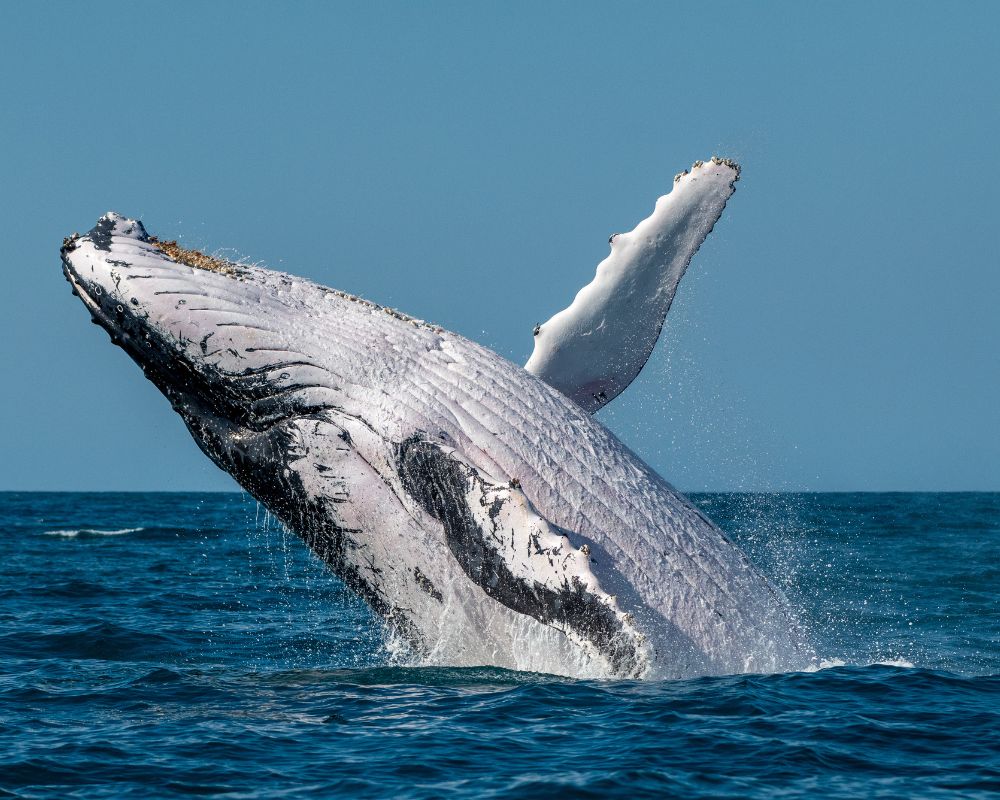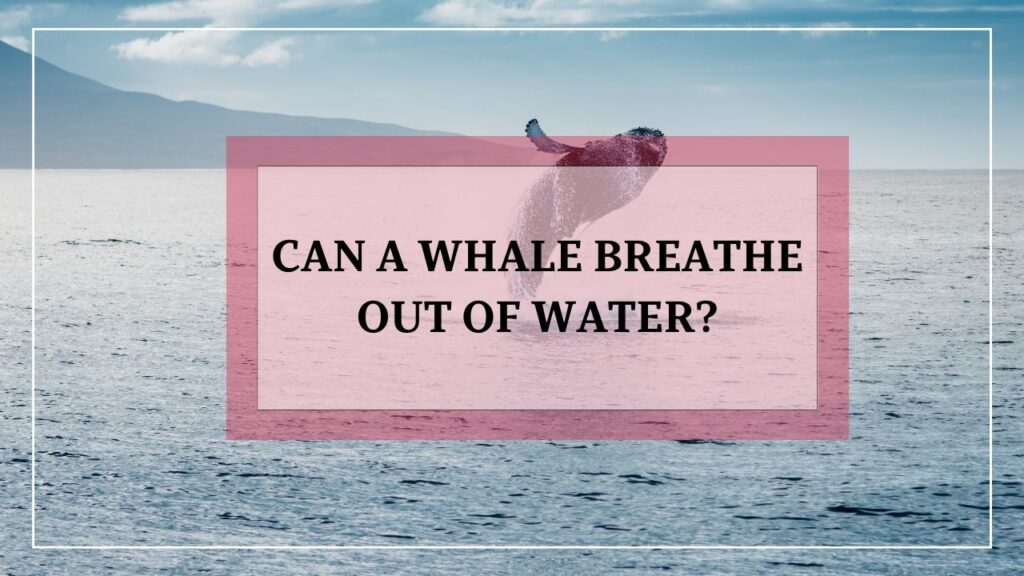Welcome, fellow animal enthusiasts! Today, we’re diving deep into the world of marine life to answer a question that’s been on many people’s minds: Can a whale breathe out of water?
You may have seen these majestic creatures leaping out of the water or blowing water out of their blowholes, but have you ever wondered how they’re able to breathe underwater? As someone who’s always been fascinated by the wonders of the ocean, I’m excited to share my insights on this topic with you today.
Whales are one of the most magnificent creatures in the ocean, but their breathing mechanisms are unique and complex. As we explore the topic of whales and their ability to breathe, we’ll uncover some fascinating insights into their biology and the adaptations that allow them to survive in their aquatic habitats.
So, let’s dive into the topic and explore the world of whales and their breathing habits!
Can Whales Breathe Out of Water?

Well, the answer is no, whales cannot breathe out of the water, and attempting to do so would be disastrous for them.
So why can’t whales breathe out of water? It all has to do with their respiratory system. Whales are mammals, which means they breathe air just like we do.
However, they’ve adapted to their aquatic lifestyle by developing a unique respiratory system that allows them to hold their breath for a long time and extract oxygen from the seawater.
Whales have a blowhole on the top of their heads that acts as a nostril. When they surface, they exhale the old air from their lungs and inhale fresh air. The blowhole then closes to prevent water from entering their lungs as they dive back underwater.
If a whale were to attempt to breathe out of the water, it would be unable to close its blowhole and would take in water instead of air. This would lead to drowning or suffocation, which is why it’s so important for whales to stay in their natural underwater habitats.
Differences Between Whales And Dolphins
Now, you may be wondering about dolphins and their ability to survive outside of water. While dolphins are also marine mammals, they have a different respiratory system than whales.
Dolphins are able to close off their blowholes and hold their breath for longer periods, allowing them to stay out of water for short periods of time. [1]
However, they still need to return to the water to breathe, and extended periods out of the water would still be harmful to their health.
How Whales Breathe
Whales are amazing creatures that breathe air just like humans. However, they have a unique way of doing so. In this section, we’ll explore the basics of how whales breathe, how they surface to breathe, and the different types of whales and their breathing habits.
The Basics Of How Whales Breathe
Whales have a special hole on the top of their head called a blowhole. This blowhole is connected to their lungs through a complex respiratory system that allows them to extract oxygen from the air and water. Unlike humans, whales don’t breathe through their noses and mouth.
How Whales Surface To Breathe And Their Adaptations
Whales need to surface to breathe, and they have a unique adaptation that allows them to do so efficiently. As the whale approaches the surface, it exhales the old air from its lungs, creating a powerful blast of air and water that shoots out of its blowhole. Then, the whale quickly inhales fresh air through the blowhole before diving back down into the water.
Whales have developed a number of adaptations to make this process as efficient as possible. For example, they have a large lung capacity and can hold their breath for up to an hour or more, depending on the species. They can also slow down their heart rate and redirect blood flow to their vital organs, allowing them to conserve oxygen while diving.
Types Of Whales And Their Breathing Habits
There are two main types of whales: baleen whales and toothed whales.
Baleen whales have a series of comb-like plates in their mouth called baleen that they use to filter food from the water.
Toothed whales, on the other hand, have teeth and hunt for their food.
In terms of their breathing habits, baleen whales tend to take long, deep breaths before diving for extended periods of time, while toothed whales are able to dive for shorter periods of time and surface more frequently to breathe. The specific breathing habits of each whale species depend on their size, location, and prey.
The Importance of Saltwater to Whales
Did you know that salt water is essential for whales to survive? That’s right! Saltwater plays a crucial role in a whale’s respiratory system, allowing them to extract oxygen from the seawater.
Whales have a unique adaptation that allows them to extract oxygen from the seawater. Their respiratory system is designed to filter out the salt from the seawater, leaving only the oxygen.
This adaptation allows whales to stay underwater for extended periods and surface only briefly to breathe.
The saltwater is also crucial to a whale’s buoyancy. It helps to support the weight of the whale, making it easier for them to move and swim through the water.
Without saltwater, whales would not be able to survive. It is an essential component of their environment, and any changes to the salt levels in the water can have a significant impact on their health and well-being.
FAQs
Do Whales Breathe Air?
Yes, whales are mammals and must breathe air to survive. They have lungs and a respiratory system similar to that of humans, but they have adapted to living in the water.
How Long Can A Whale Breathe Out Of Water?
Whales are capable of holding their breath for extended periods, with some species able to stay underwater for up to 90 minutes. However, they must eventually surface to breathe air, or they will drown.
Can A Whale Survive Outside Of Water?
No, whales cannot survive outside of water. Their bodies are adapted to living in the water, and being out of the water for an extended period would be harmful to their health. The weight of their massive bodies would also make it challenging for them to move on land.
How Do Whales Sleep If They Can’t Breathe Underwater?
Whales have a unique sleeping pattern where they only shut down one hemisphere of their brain at a time, allowing them to continue to surface and breathe while sleeping. They also do not enter a deep sleep state like humans and instead have short periods of rest throughout the day and night.

